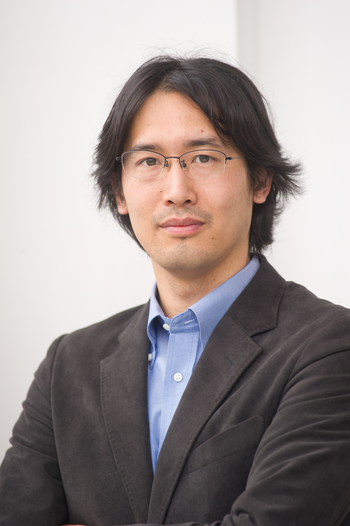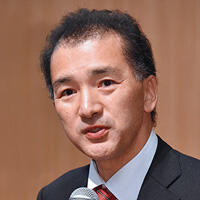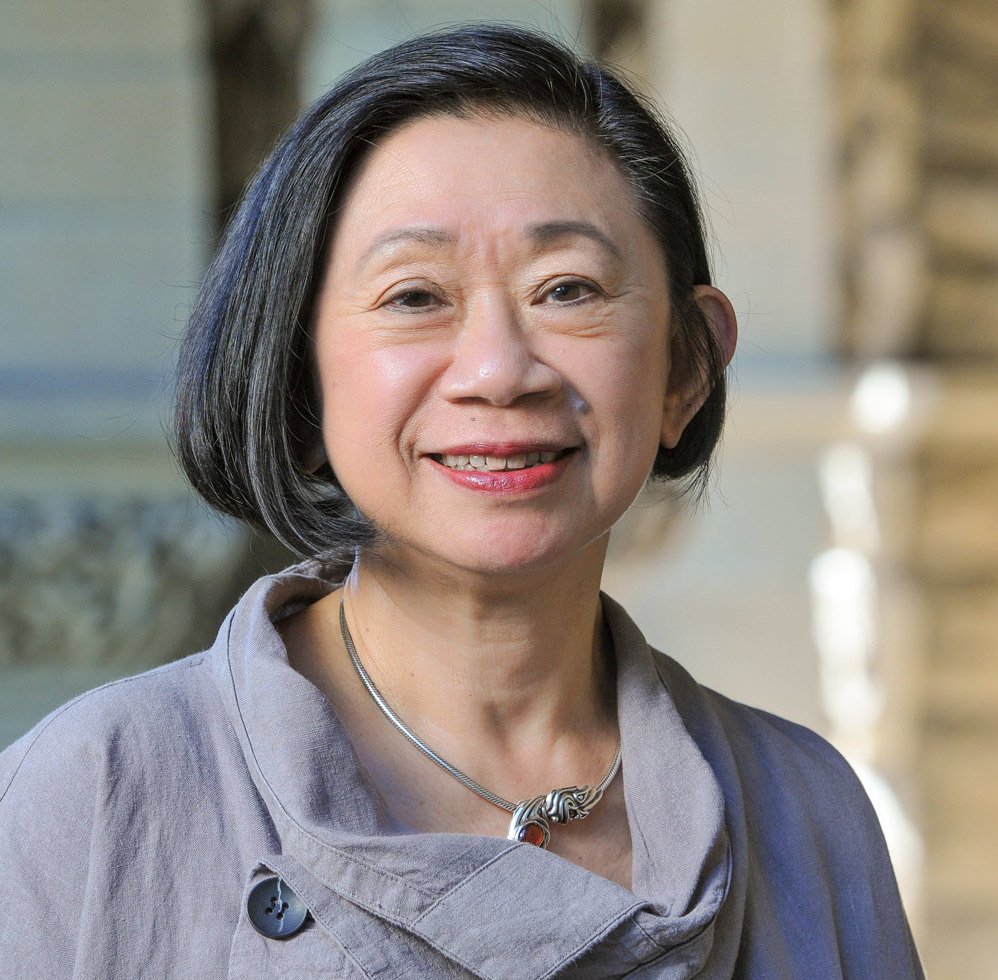As we watch President Trump tell the states they have to do more to find their own personal protective equipment for their health-care workers, governors lash back with demands for a national leader who will unlock the emergency powers of the federal government.
The response to the COVID-19 pandemic has exposed major weaknesses in the federalist system of public health governance, which divides powers among the federal, state and local governments, argues SHP’s Michelle Mello in this New England Journal of Medicine commentary.
The coronavirus, she writes, “is exactly the type of infectious disease for which federal public health powers and emergencies were conceived: it is highly transmissible, crosses borders efficiently, and threatens our national infrastructure and economy.”
“Strong, decisive national action is therefore imperative,” writes Mello, a professor of medicine and a professor of law, and Rebecca L. Haffajee, a policy researcher at the RAND Corporation. “Yet the federal response has been alarmingly slow to develop, fostering confusion about the nature of the virus and necessary steps to address it.”
The authors warn this “lack of interjurisdictional coordination has and will cost lives.”
Though states must respect constitutionally protected individual rights — such as due process, equal protection and freedom of travel and association — the Constitution puts primary responsibility for public health with the states, cities and counties. It gives them the right to exercise broad police powers to protect their citizens’ health during ordinary times.
In extraordinary times — like the one we’re experiencing now — states and the federal government can activate emergency powers to expand their abilities to act swiftly and protect human life and health. All 50 states and dozens of localities and the federal government have declared emergencies.
“The resulting executive powers are sweeping: they can range from halting business operations, to restricting freedom of movement, to limiting civil rights and liberties, to commandeering property,” Mello and Haffajee write in the NEJM Perspective.
This emergency legal framework has led to too few checks-and-balances on poor decisions—historically, in the direction of being overly aggressive, write the authors. They note a good example is when New Jersey’s governor ordered a nurse returning from Sierra Leone during the 2014 Ebola outbreak into quarantine, contrary to Centers for Disease Control and Prevention guidelines.
Too Little Too Late?
“Today, we find ourselves in the opposite situation: the federal government has done too little,” the authors write. “Perhaps because of misleading early statements from federal officials about the gravity of the COVID-19 threat, public sentiment has weighed against taking steps that would impose hardships on families and businesses.”
The tumbling stock market and unprecedented 10 million unemployment claims last month also have created further pressure by the federal government to project a sense of calm.
“The resulting laconic federal response has meant that a precious opportunity to contain COVID-19 through swift, unified national action has been lost — a scenario that mirrors what occurred in Italy,” they write.
So the states had to pick up where the federal government fell short, the authors note. Many jurisdictions issued stay-at-home orders; others did not. As of March 31, more than a dozen governors had yet to issue statewide stay-at-home orders and eight had only ordered partial measures. Yet many jurisdictions turn a blind eye, they note, to noncompliance with social-distancing recommendations issued by the CDC, as evidenced by crowded beaches and children congregating in public parks.
“This is the dark side of federalism: it encourages a patchwork response to epidemics,” the authors write.
“A federal takeover of all public health orders would be out of step with our federalist structure,” the authors state, but there remain three good options:
- “The White House must reverse its current trajectory toward prematurely weakening existing federal measures and the resolve of governors who are enforcing stay-at-home orders and school closures.” Trump said last week he wanted the United States “opened up and raring to go by Easter.” A few days later, he heeded the call of medical experts and extended social-distancing guidelines until the end of April, but public health experts believe the crisis will likely be with us longer.
- Congress should “use its spending power to further encourage states to follow a uniform playbook for community mitigation that includes measures for effective enforcement of public health orders.” It could threaten to withhold some federal funds from states that do not comply.
- “Congress could leverage its interstate-commerce powers to regular economic activities that affect the interstate spread” of COVID-19, such as restricting large businesses from traveling and operating across state lines in ways that expose workers to risk.
The White House could also make further use of the Defense Production Act (DPA) to direct private companies to produce badly needed ventilators and personal protective equipment for health-care workers, the authors write. Trump has ordered General Motors to manufacture ventilators and the $2 trillion stimulus package includes $1 billion for DPA projects.
“Learning is difficult in the midst of an emergency, but one lesson from the COVID-19 epidemic is already clear: when epidemiologists warn that a pathogen has pandemic potential, the time to fly the flag of local freedom is over,” the authors conclude. “Yet national leadership in epidemic response works only if it is evidence-based. It is critical that the U.S. response to COVID-19 going forward be not only national, but rational.”




 Karen Eggleston is a senior fellow at the Freeman Spogli Institute for International Studies (FSI) at Stanford University, director of the Stanford Asia Health Policy Program, and deputy director of the Walter H. Shorenstein Asia-Pacific Research Center at FSI. She is also a fellow with the Stanford Center for Innovation in Global Health and a faculty research fellow of the National Bureau of Economic Research (NBER). Eggleston earned her PhD in public policy from Harvard University, studied in China for two years, and was a Fulbright scholar in South Korea. Her research focuses on comparative health systems and health reform in Asia, especially China; government and market roles in the health sector; supply-side incentives; healthcare productivity; and economic aspects of demographic change.
Karen Eggleston is a senior fellow at the Freeman Spogli Institute for International Studies (FSI) at Stanford University, director of the Stanford Asia Health Policy Program, and deputy director of the Walter H. Shorenstein Asia-Pacific Research Center at FSI. She is also a fellow with the Stanford Center for Innovation in Global Health and a faculty research fellow of the National Bureau of Economic Research (NBER). Eggleston earned her PhD in public policy from Harvard University, studied in China for two years, and was a Fulbright scholar in South Korea. Her research focuses on comparative health systems and health reform in Asia, especially China; government and market roles in the health sector; supply-side incentives; healthcare productivity; and economic aspects of demographic change. Thomas Fingar is a Shorenstein Distinguished Fellow in the Shorenstein Asia-Pacific Research Center at Stanford University. From May 2005 through December 2008, he served as the first deputy director of national intelligence for analysis and, concurrently, as chairman of the National Intelligence Council. Previous positions include assistant secretary of state for Intelligence and Research (2000-2001, 2004–2005), principal deputy assistant secretary (2001–2003), deputy assistant secretary for analysis (1994–2000), director of the Office of Analysis for East Asia and the Pacific, and chief of the China Division. Fingar is a graduate of Cornell University (AB in government and history) and Stanford University (MA and PhD, both in political science). His most recent books are Uneasy Partnerships: China’s Engagement with Japan, the Koreas, and Russia in the Era of Reform (editor) (Stanford University Press, 2017); The New Great Game: China’s Relations with South and Central Asia in the Era of Reform (editor) (Stanford University Press, 2016); and Reducing Uncertainty: Intelligence Analysis and National Security (Stanford University Press, 2011).
Thomas Fingar is a Shorenstein Distinguished Fellow in the Shorenstein Asia-Pacific Research Center at Stanford University. From May 2005 through December 2008, he served as the first deputy director of national intelligence for analysis and, concurrently, as chairman of the National Intelligence Council. Previous positions include assistant secretary of state for Intelligence and Research (2000-2001, 2004–2005), principal deputy assistant secretary (2001–2003), deputy assistant secretary for analysis (1994–2000), director of the Office of Analysis for East Asia and the Pacific, and chief of the China Division. Fingar is a graduate of Cornell University (AB in government and history) and Stanford University (MA and PhD, both in political science). His most recent books are Uneasy Partnerships: China’s Engagement with Japan, the Koreas, and Russia in the Era of Reform (editor) (Stanford University Press, 2017); The New Great Game: China’s Relations with South and Central Asia in the Era of Reform (editor) (Stanford University Press, 2016); and Reducing Uncertainty: Intelligence Analysis and National Security (Stanford University Press, 2011).
 Jean C. Oi is the William Haas Professor of Chinese Politics in the Department of Political Science and a senior fellow in the Freeman Spogli Institute for International Studies at Stanford University. She directs the China Program at the Walter H. Shorenstein Asia-Pacific Research Center and is the Lee Shau Kee Director of the Stanford Center at Peking University. Oi has published extensively on China’s reforms. Recent books include Zouping Revisited: Adaptive Governance in a Chinese County, coedited with Steven Goldstein (Stanford University Press, 2018), and Challenges in the Process of China’s Urbanization, coedited with Karen Eggleston and Yiming Wang (2017). Current research is on fiscal reform and local government debt, continuing SOE reforms, and the Belt and Road Initiative.
Jean C. Oi is the William Haas Professor of Chinese Politics in the Department of Political Science and a senior fellow in the Freeman Spogli Institute for International Studies at Stanford University. She directs the China Program at the Walter H. Shorenstein Asia-Pacific Research Center and is the Lee Shau Kee Director of the Stanford Center at Peking University. Oi has published extensively on China’s reforms. Recent books include Zouping Revisited: Adaptive Governance in a Chinese County, coedited with Steven Goldstein (Stanford University Press, 2018), and Challenges in the Process of China’s Urbanization, coedited with Karen Eggleston and Yiming Wang (2017). Current research is on fiscal reform and local government debt, continuing SOE reforms, and the Belt and Road Initiative. Andrew G. Walder is the Denise O’Leary and Kent Thiry Professor of Sociology in the School of Humanities and Sciences, and a senior fellow in the Freeman Spogli Institute for International Studies at Stanford University. A political sociologist, Walder has long specialized in the study of contemporary Chinese society and political economy. After receiving his PhD at the University of Michigan, he taught at Columbia, Harvard, and the Hong Kong University of Science and Technology. At Stanford he has served as chair of the Department of Sociology, director of the Asia-Pacific Research Center, and director of the Division of International, Comparative, and Area Studies in the School of Humanities and Sciences. His most recent books are Fractured Rebellion: The Beijing Red Guard Movement (2009), China under Mao: A Revolution Derailed (2015), and Agents of Disorder: Inside China’s Cultural Revolution (2019).
Andrew G. Walder is the Denise O’Leary and Kent Thiry Professor of Sociology in the School of Humanities and Sciences, and a senior fellow in the Freeman Spogli Institute for International Studies at Stanford University. A political sociologist, Walder has long specialized in the study of contemporary Chinese society and political economy. After receiving his PhD at the University of Michigan, he taught at Columbia, Harvard, and the Hong Kong University of Science and Technology. At Stanford he has served as chair of the Department of Sociology, director of the Asia-Pacific Research Center, and director of the Division of International, Comparative, and Area Studies in the School of Humanities and Sciences. His most recent books are Fractured Rebellion: The Beijing Red Guard Movement (2009), China under Mao: A Revolution Derailed (2015), and Agents of Disorder: Inside China’s Cultural Revolution (2019).




